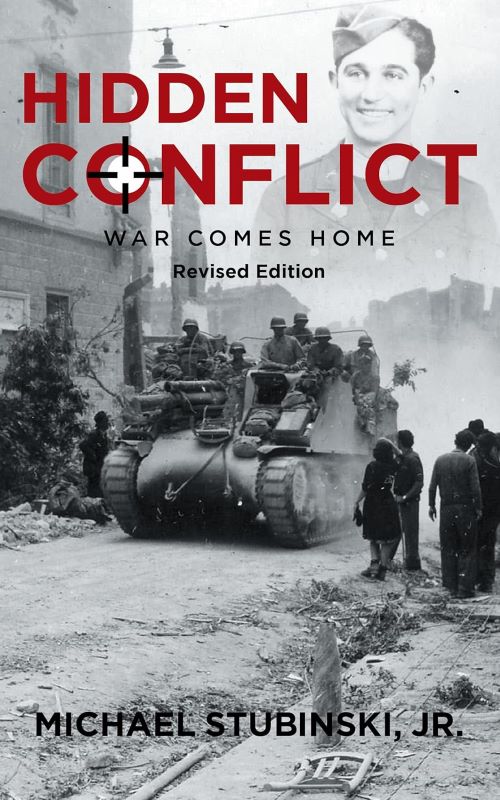Post-Traumatic Stress Disorder (PTSD) is often seen as a soldier’s private burden, the unseen wounds carried home from battlefields. But PTSD rarely stays contained within one heart. Its impact ripples outward, shaping marriages, parenting, and family life, sometimes for generations. For soldiers and their families, the silent battles of PTSD are fought long after the fighting overseas has ended. Understanding how trauma echoes through time is essential to breaking cycles of pain and building paths toward healing.
The Invisible Wounds of War at Home
While visible scars heal, PTSD often lingers invisibly. Soldiers may return physically intact but emotionally fractured, grappling with flashbacks, emotional withdrawal, anger, and deep-seated anxiety. These struggles don’t just remain inside the veteran; they reach into the heart of family life.
Spouses may struggle to understand mood swings and emotional distance. Children, longing for connection, may misinterpret a parent’s pain as rejection. Over time, even strong families can find themselves reshaped by the silent, unpredictable nature of PTSD, carrying unspoken burdens they were never trained to recognize.
The Science Behind Generational Trauma
Research in epigenetics reveals that trauma doesn’t simply reside in memory, it alters biology. Studies show that children of parents who endured severe trauma, such as combat veterans, are three times more likely to experience symptoms of PTSD themselves. Even without direct exposure to war or violence, these children often inherit the emotional echoes of their parents’ struggles.
This phenomenon, known as transgenerational trauma, explains why the pain of war can reach far beyond the battlefield. It is passed through behaviors, emotional patterns, and even subtle changes at the genetic level, shaping children and grandchildren in ways they may not fully understand.
How PTSD Changes Family Dynamics Across Generations
Within soldier families, PTSD can redefine the emotional landscape of home. Veterans coping with untreated trauma may battle emotional numbing, hyper-vigilance, or unpredictable anger. Children growing up in such environments may internalize these emotional patterns, learning to mistrust security, fear conflict, or suppress their own needs.
Even without physical violence, the instability PTSD creates can foster anxiety, detachment, and chronic insecurity in children. These traits, once learned, are often carried into adulthood and passed down further, creating emotional legacies shaped by wounds no one could see.
Trauma’s Long Reach Into the Future
Trauma has the chilling power to reach out from the past and claim new victims. In military families, the pain of one generation can quietly shape the next, influencing their ability to trust, love, and feel safe. And right now, there is no definitive cure for inherited family trauma. Healing, however, is possible, but it must be intentional, patient, and courageous.
Without awareness and intervention, families risk becoming locked in patterns of silence, shame, and emotional disconnection carrying the weight of battles they never fought but still feel.
Breaking the Cycle: Hope for Soldier Families
Though the scars run deep, soldier families also carry extraordinary reservoirs of strength, loyalty, and love. Healing begins by recognizing the patterns PTSD has created and refusing to allow them to define the future.
Therapy, open conversations, community support, and the bravery to name the hidden wounds all help loosen trauma’s grip. Healing doesn’t erase the past, but it builds a different future, one marked by resilience, compassion, and renewed connection.
The battles may have started on distant battlefields, but they don’t have to define the homes we build today. With courage, compassion, and community, the cycle can end and a new story can begin.

Final Thought: You’re Not Alone in This Fight
PTSD isn’t just one person’s battle, it’s a family’s journey. But with awareness, support, and resilience, you can break the cycle. If you or a loved one is navigating PTSD’s ripple effects, know that help exists. Start the conversation today.
If you want to know about healing and resilience, then Hidden Conflict: War Comes Home by Michael Stubinski Jr. is a great choice. In his book, his father Mike faces his own battles, both external and internal. His journey mirrors the struggles many veterans and their families experience. Through self-discovery and perseverance, Mike learns that healing isn’t about erasing the past, but finding strength in it.
Like Mike, real families can rewrite their stories. The scars of PTSD may linger, but they don’t have to dictate the future.
Ready to explore a story of resilience? Order Hidden Conflict: War Comes Home now and discover how one man’s struggles lead to transformation.



